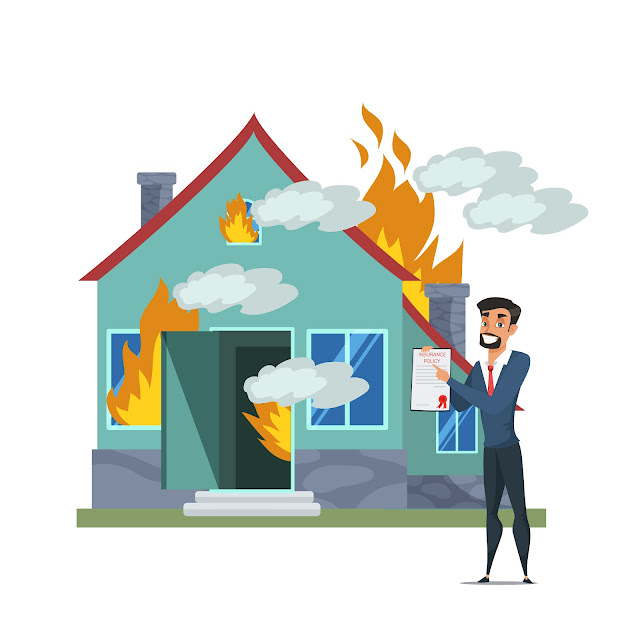The Vital Role of Homeowner's Insurance in Fire Incidents
Insurance Matters Blog. Fire is a disaster that can rapidly threaten the safety and livelihood of homeowners. When a fire breaks out, swift aid and support are needed. One of the parties that play a crucial role in handling this emergency is the firefighting team. However, you may have experienced situations where firefighters request information about your homeowner's insurance after a fire incident. Why do they do this? This article will explain why firefighters ask for homeowner's insurance information after a house fire.
 |
| The Vital Role of Homeowner's Insurance in Fire Incidents |
1. Verifying Homeowner's Information
When firefighters arrive at the scene of a fire, their top priority is to extinguish the flames and save lives and property. After the immediate emergency situation has subsided, they may attempt to identify the homeowner and verify information about the property. One way to do this is by requesting homeowner's insurance information. With this information, firefighters can confirm ownership of the property and obtain the homeowner's contact address for future purposes.
2. Access to Emergency Contacts
Homeowner's insurance information often includes emergency contact details. If the homeowner is not present at the scene of the fire, firefighters can use these emergency contacts to notify the homeowner about the incident. In emergencies like fires, quick access to the homeowner or their representative can be crucial in coordinating further actions, including steps to protect remaining property and initiate the recovery process.
3. Coordination with Insurance Companies
Homeowner's insurance information also aids firefighters in coordinating with the homeowner's insurance company. After a fire, homeowners may need to file insurance claims to replace the losses incurred due to the incident. Firefighters, as witnesses and initial responders to the incident, can play a role in providing reports and documentation required by the insurance company to process claims quickly and accurately.
4. Identifying Additional Risks
In some cases, firefighters may also use homeowner's insurance information to identify additional risks that may exist on the property. For example, if the house has other insurance coverage that includes fire risk, firefighters can coordinate with the relevant insurance companies to ensure appropriate protection and actions.
5. Securing and Facilitating Recovery
After a fire, firefighters also play a role in securing the remaining salvageable property. In certain cases, homeowner's insurance coverage may include post-fire recovery services, such as salvaging remaining possessions and cleaning up the property after the fire. With homeowner's insurance information, firefighters can coordinate with recovery teams to carry out these tasks.
Conclusion
Firefighters request homeowner's insurance information after a house fire because there are several benefits to having this information. In addition to verification and coordination, homeowner's insurance information helps firefighters in processing insurance claims and identifying additional risks that may exist on the property. In emergency situations like fires, cooperation between homeowners, firefighters, and insurance companies is crucial to ensure efficient handling and swift recovery after the disaster. Therefore, having the right homeowner's insurance provides the protection and support needed in the face of fire incidents and other risks.

